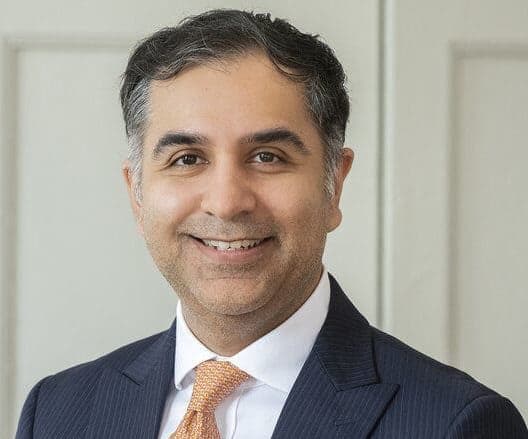The growing role of global capital in Asian real estate is reshaping the way the industry operates, as the growing importance of property as an institutional asset class boosts demand for information on returns as well as risk, according to market monitoring experts at MSCI.
In an interview with Mingtiandi on Thursday, Varun Malik, who heads up the Manhattan-based information service’s real estate client coverage for Asia Pacific, also tied the rise in demand for market information to changes wrought by the pandemic, as investors accustomed to steady rental returns registered a greater recognition of risk.
“There has been a reduced level of appreciation for risk over the last five to 10 years,” Malik said. “I think there’s been so much growth, that nobody’s kind of looked in the rearview mirror to see what kind of risks are coming up. That’s a key element.”
Malik noted that with COVID-19 having disrupted many industries, real estate asset owners are now more cognisant of potential tenant risks, as well as showing a heightened appreciation for sustainability concerns and changes driven by climate change.
Financialisation of Real Estate
MSCI, which earlier this year agreed to buy property data provider Real Capital Analytics for $950 million, has been diversifying its information services beyond its origins as a source of market data for listed equities, with providing a clearer view of the “financialisation” of real estate globally becoming a key part of its growing coverage of private markets.

Varun Malik of MSCI
“At MSCI, what we’re essentially trying to do is be the lens through which asset owners, which is the capital providers, and asset managers, which are essentially the guys who deploy that capital, communicate with each other,” explained Malik, who was speaking with Mingtiandi founder Michael Cole as part of the MTD TV Property Innovation Forum 2021.
During the half-hour segment, which was sponsored by Yardi, Malik also talked about how property players are increasingly turning to third-party market data to inform their strategies, as well as offering a glimpse of his company’s plans to help smooth interactions between global capital and the asset managers on the ground in key markets.
Risk Assessment
With persistent low interest rates reducing returns from fixed-income investments and other institutional standbys, the enhanced returns offered by real estate have made the industry an increasingly important source of opportunities for investors, and no longer just a means for fulfilling a social need, Malik explained.
However, with the COVID-19 crisis having called into question how tenants use shopping malls, commercial offices and other assets traditionally seen as sources of steady returns, those in charge of investing large pools of money are looking for reliable information to help manage risk in these largely private markets.
To that end, MSCI and property services firm Savills have taken a strategic stake in London-based Income Analytics, which provides rental default risk measures on commercial real estate income — information that is increasingly crucial for managers and capital providers.
“As you seek to determine the volatility of future cash flows in a market that is still arguably in a state of flux, because of the massive volatility of cash flow over the last year, investors have realised they did not have the tools or the data to properly compare the riskiness of real estate rental income across assets, portfolios and regions,” Malik said. “And that is ultimately what we’re trying to do through this investment in Income Analytics.”
Climate Considerations
With sustainability a marquee issue in today’s corporate world, MSCI has devised climate change risk metrics across listed equities, fixed income and now private assets. In 2019 the firm acquired Carbon Delta, a Swiss research group specialising in climate change scenario analysis, in order to beef up its climate risk assessment capabilities. Carbon Delta had worked with the United Nations and 20 of the world’s leading asset managers and owners to create a framework for climate-related financial disclosures.
“All the participants, along with MSCI, developed scenarios, models, metrics and ultimately a risk-assessment tool to enable investors to assess the climate risk across their portfolios,” Malik said.
He expects climate risk to advance from a token portfolio metric to a “key driver of performance” for fund managers in a short span of time.
“We’ve gone from a world of, well, there’s investing and then there’s ESG investing, to a world where it’s just investing,” Malik said. “If you look at the world five years ago there’d be, in any IC paper across managers or asset owners, a one- or two-pager in the appendix about climate change risk. That has now become the leading topic among investors and managers when they’re looking to deploy capital.”
What’s Ahead in 2022
With this year’s online forums now concluded, Mingtiandi is organising a series of MTD TV events in 2022 to bring together thought leaders from around the region and beyond to discuss trends affecting sectors including residential, logistics, REITs, data centres and office strategies.
The schedule kicks off in March with the APAC Residential Investment Forum. Session topics will include multi-family investment, residential finance trends and sustainability in housing.
Leave a Reply